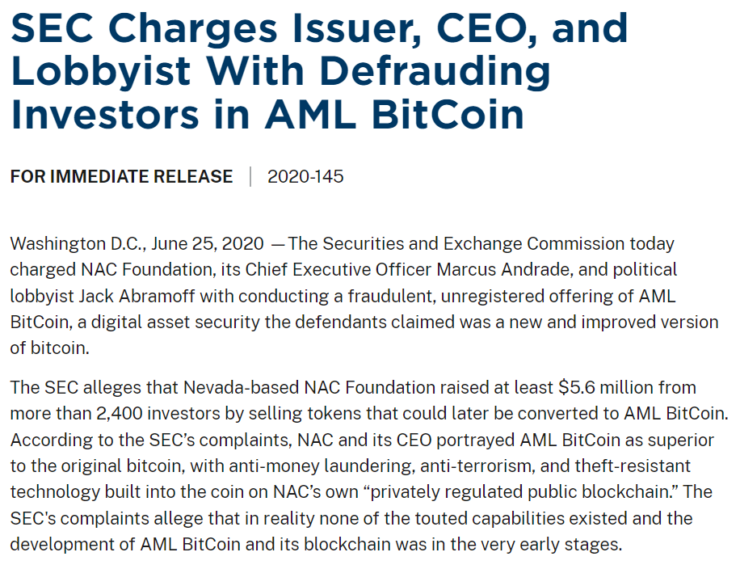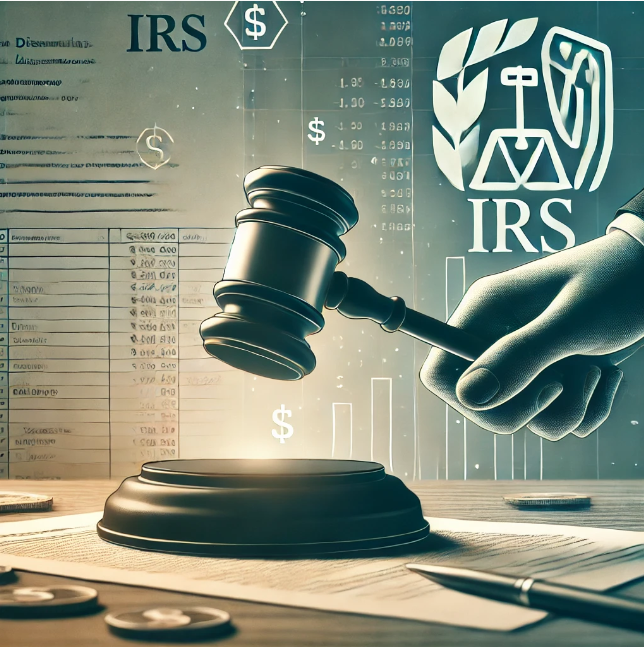The U.S. Internal Revenue Service (IRS) has escalated its legal battle against crypto founder Rowland Marcus Andrade, urging an appeals court to dismiss his attempt to quash tax summonses related to his financial records. The case, which revolves around privacy concerns and crypto taxation, could have significant implications for financial transparency, regulatory oversight, and privacy rights in the crypto sector.
IRS vs. Andrade: The Legal Showdown
The dispute began in 2021, when the IRS launched an investigation into ABTC Corporation, the firm founded by Andrade, to determine potential violations of financial reporting laws under the Bank Secrecy Act (BSA).
In May 2023, the IRS issued summonses to Bank of America and JPMorgan Chase, seeking financial records related to Andrade and ABTC. However, Andrade alleged that he was never properly notified about the summonses, claiming the IRS violated his Right to Financial Privacy Act (RFPA) protections.
The Privacy Claim and Court Response
According to court documents, Andrade’s attorney discovered the summonses independently and requested copies from the IRS. By September 2023, the agency reissued the summonses, this time mailing notifications to Andrade’s business address. These notifications, however, were returned as undeliverable in October.
In February 2024, Andrade filed a lawsuit in Texas, seeking to quash the IRS summonses, alleging the agency’s actions were unlawful. However, by May 2024, the district court denied his motion, ruling that the IRS had sufficiently complied with the RFPA and had properly notified him through the second issuance.
The court also declared that the case was moot, as the banks had already complied and turned over Andrade’s financial records to the IRS. Unwilling to back down, Andrade appealed the ruling to the Fifth Circuit in August 2024, requesting a stay to prevent the IRS from reviewing the documents while the appeal was pending.
IRS Pushes Back: No Legal Grounds for Appeal
On February 10, 2025, the IRS and Department of Justice (DOJ) filed a brief with the Fifth Circuit appeals court, arguing that:
- The court lacks jurisdiction over the matter as there was no ongoing legal proceeding.
- The IRS had substantially complied with the RFPA’s notification requirements.
- Andrade is not entitled to damages or attorneys’ fees, as these claims hinge on a statutory violation that did not occur.
Regulatory Implications for Crypto Privacy
The case highlights the ongoing tug-of-war between financial privacy and regulatory enforcement in the cryptocurrency space. The IRS has ramped up scrutiny of crypto-related financial transactions, leveraging existing laws to compel financial institutions to provide account records of individuals suspected of non-compliance.
If the Fifth Circuit upholds the lower court’s ruling, it could reinforce the IRS’s ability to summon bank records without requiring direct notification to the subject of the investigation. This could set a precedent for future tax enforcement actions against crypto entities, making it easier for regulators to access financial data without individual consent.
Andrade’s Past Legal Troubles
This is not Andrade’s first run-in with regulators. In 2020, the U.S. Securities and Exchange Commission (SEC) charged him with conducting an unregistered securities offering related to AML Bitcoin, a token that he claimed was an improved version of Bitcoin with built-in anti-money laundering features.

Given his legal history, his current appeal against the IRS raises further questions about regulatory oversight in the crypto industry. If Andrade’s challenge is dismissed, it could pave the way for more aggressive financial monitoring by tax authorities, particularly against individuals and firms operating in crypto finance.
Final Thoughts: A Precedent-Setting Case for Crypto Taxation
The IRS’s push against Andrade’s privacy claim is more than just a legal battle—it’s a test case for how financial privacy laws apply to crypto taxation. If the courts side with the IRS, the ruling could:
- Strengthen the IRS’s authority to summon financial records without prior notification.
- Reduce privacy protections for crypto entrepreneurs facing tax-related investigations.
- Set a precedent for future tax enforcement in the digital asset industry.
As the Fifth Circuit prepares to make its decision, the outcome will likely reverberate through the crypto industry, shaping the balance between privacy rights and regulatory compliance for years to come.





